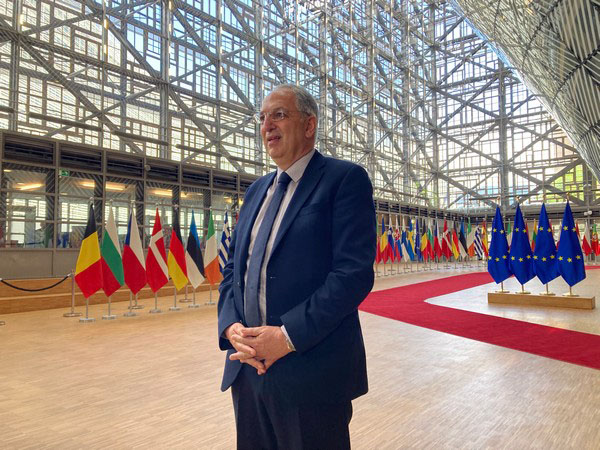European Commissioner for Fisheries and Oceans Costas Kadis stressed the importance of his role on his first day in office on Sunday.
Kadis, a Cypriot national, told newspaper Phileleftheros he considers the role to be “extremely important”.
“The management and the conservation of marine biological resources under the common fisheries policy is an exclusive competence of the European Union, which is the case for only five thematic policies. This is the first time a Cypriot commissioner has been assigned a portfolio that has under their responsibility such a broad scope,” he said.
Matters of “marine plants and animals” can only be legislated on at the EU level, with member states only able to apply the laws set by the EU, unless otherwise specifically authorised.
The other four matters to which Kadis was referring are the customs union, competition rules for the European single market, monetary policy for Eurozone countries, and most trade and international agreements.
However, Kadis was keen to point out that his brief is not limited to matters of fishing.
“This brief does not only concern the narrow scope of fisheries management. Indicative of the importance of the portfolio I am undertaking is that the EU and its member states have the largest exclusive economic zone (EEZ) in the world, covering 3.5 million square kilometres excluding its outermost regions,” he said.
He added that if those outermost regions, most of which concern overseas territories of former colonial powers, are included, the size of that EEZ rises to 17 million square kilometres.
He also pointed out that the European internal market is “the world’s second-largest market for fishery and aquaculture products in terms of trade, after China”, and that for this reason, “it is the highest honour for Cyprus that the Cypriot commissioner, from a small island in the Mediterranean, is taking on a portfolio of such weight”.
Looking ahead to his forthcoming five-year tenure in the role, he said his overall goal will be “to ensure the sustainability, competitiveness, and resilience of Europe’s fisheries and aquaculture sectors, but also the protection and sustainable management of our seas”.
He said an overall evaluation of the common fisheries policy is already underway, with the commission having launched it in June with the aim of evaluating the policy’s effectiveness in a number of key areas.
Those areas include the long-term sustainability of fisheries and aquaculture, the contribution to the protection of the marine environment, the availability of food supplies, and a fair standard of living for people living in fishing communities.
It is expected that the commission will publish a summary report of its consultation in the first quarter of next year.
Kadis was nominated for his role by European Commission President Ursula von der Leyen in September after having been put forward to her by Cypriot President Nikos Christodoulides.
At the time, he insisted the fisheries portfolio constitutes an “upgrade” from the health portfolio Cypriot commissioner Stella Kyriakides held between 2019 and Saturday.
He received 26 votes in his favour and six against during his hearing at the European Parliament’s fisheries and oceans committee last month, with von der Leyen’s second commission then being rubber-stamped by the European Parliament in a plenary session later in the month.
Cyprus’ President Nikos Christodoulides was among the first to congratulate him after his hearing, saying he looks forward “to working closely with Kadis in view of Cyprus taking over the European Council’s rotating presidency in the first half of 2026”.
This cooperation, he said, will be carried out “with the aim of building a resilient, competitive, and sustainable fisheries sector, strengthening the blue economy and addressing the challenges ahead”.
Despite the fact that European commissioners ostensibly have no links to their home country once they become commissioners, working solely on behalf of the commission, Christodoulides linked the role to Cyprus, as many EU leaders now do when speaking of commissioners who share their nationality.
“Cyprus undertakes an upgraded portfolio of critical importance to the European economy, to promote the green transition and the sustainable management of maritime resources,” he said.







Click here to change your cookie preferences